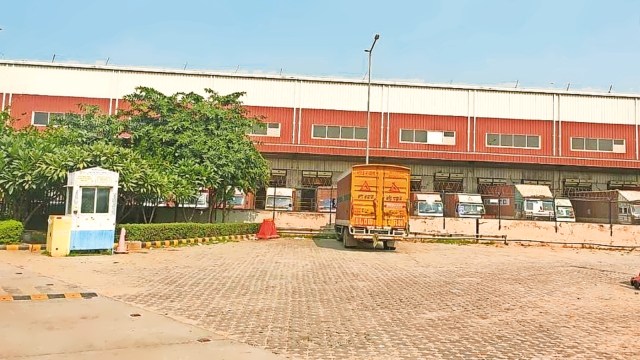
They want you to think they care. As north India – much of the country, in fact – suffers a debilitating heatwave, the apps that have made the lives of the better-off so much easier, implore customers to offer delivery “boys” a glass of water. For men and women who are chasing targets, rushing from home to home on e-bikes and cycles, so that we do not have to step out of our air-conditioned homes and offices, it is a fair ask.
But what are the Blinkits, Zomatos, Zeptos and Swiggys of the world doing for their “partners”? In Delhi, at least six of these partners confirmed that they do not get hazard pay, nor any help from the companies that use their labour as the basis for their much-touted “innovation”. But then, our homegrown startups are just learning from the best in the world.
Jeff Bezos, founder of Amazon and now body-builder and space taxi provider for his rich pals, is worth nearly $200 billion (or about Rs 1.7 lakh crore). A worker at Amazon’s warehouse often earns less than Rs 11,000 per month, in hand. At that pittance, several workers at its five warehouses in Manesar, Haryana, have been made to take an oath that they will not “drink water” or use the toilet unless they meet their daily targets – a demand that is practically impossible if labour laws around work-day lengths and timings are followed. Amazon, of course, is notorious for its inhuman treatment of labour, including in the US. It is no better in India. But Amazon, at least, has employees. Others just have “partners”.
A combination of guaranteed deliveries, quick sorting and sourcing and the abundance of a vast army of labour to carry out this task also underpins India’s delivery-led “innovation”. Delivery partners are not employees – they have no job security, no recourse when mistreated and no benefits. This “partnership” model has been used to the greatest effect by Uber, globally. In essence, it undercuts labour costs, while at the same time forcing (the jargon MBAs use is “incentivising”) “partners” to work longer hours – driven not by a boss but by the sunk costs of purchasing vehicles, and other investments made to become “gig workers”.
What allows companies to keep workers casual, celebrating their “partners” for PR purposes while ignoring protests that demand basic rights? What makes it so easy for them to push people to the indignity of “oaths” that are dehumanising?
In his most recent book, What Went Wrong with Capitalism, investor Ruchir Sharma looks at America and finds, in essence, that the consolidation of a few companies and the socialisation of losses (through bailouts and bad regulation) and inequality – between companies and within society – is a major culprit. Then, there’s the fact that many of the plutocrats of today are no Henry Ford. Like Bezos and Deepinder Goyal, Ford too took existing technologies and innovated on the process: The assembly line, pioneered by Ford, remains in place to this day. And while neither Bezos nor Goyal “invented” GPS or basic programming languages, they did create sourcing and delivery infrastructure. Ford, however, insisted that a worker in his factory be paid enough to afford the product they were manufacturing. Can the same be said today? At Rs 11,000-13,000/month, there are likely few Amazon products being delivered to those who have taken the “oath”. Such a wide gap between the purchasing power of the producer and the consumer does not bode well in the long term – politically, socially and even economically.
Third, India has an abundance of labour – cheap labour. The desperation for any employment means that people will flock to whatever work is available. And that’s a crucial difference. Gig workers may have work, they do not have jobs. One argument – popular among economists of a certain stripe – is that some work is better than no work. Issues of decency and dignity will be addressed with growth, that as the “pie gets bigger, wealth will trickle down”, and the market will fix all. This ignores the role of the state, and perhaps even society. Since the fight for the eight-hour workday in the late 19th century, it has been the norm that certain laws are put in place to ensure a lack of exploitation. That’s why dignity and equality find place in the Constitution as fundamental rights. Economic desperation should not open up people to degradation.
Finally, the impunity and apathy. The Amazon “oath” story will come and go, Bezos will continue to joyride in orbit. And “people like us” – unaware, perhaps, that our white-collar jobs could become a “gig” at a whim – will make all the right noises at a party. Then, perhaps, you’ll crave an ice cream, or chilled coconut water. Delivered in 10 minutes.
Don’t forget to offer water.
aakash.joshi@expressindia.com
Click here for real-time updates on the Lok Sabha Election Results 2024


